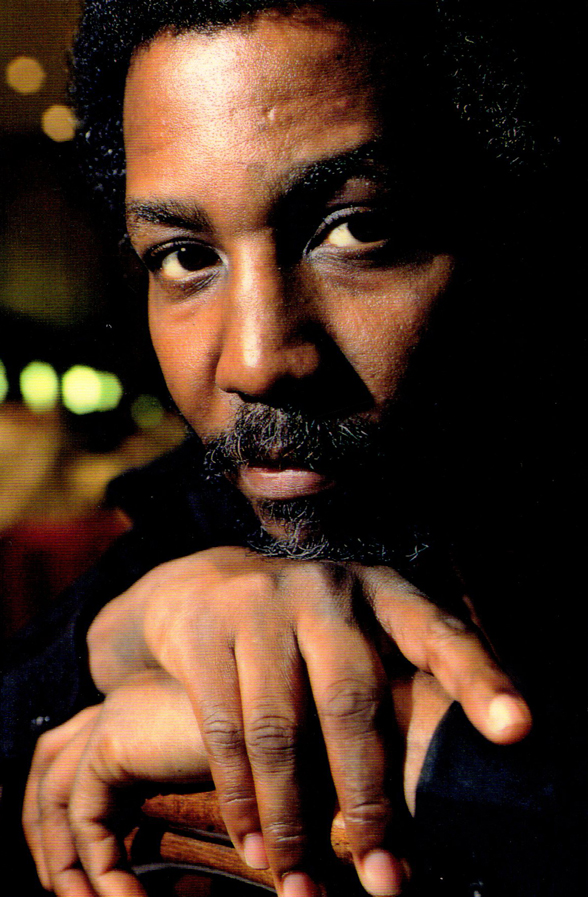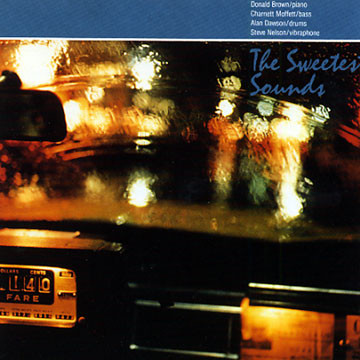G♭ major (F♯ major) is certainly an under-explored key; it's particularly satisfying for a song as swinging as this one. There are a lot of melodic and harmonic forays outside of the key, so we have decided to not use a key signature in our lead sheet. Romantic as the title implies, this song presents a very lyrical melody throughout.
As with several other Donald Brown songs, the form is unique: in this case a 16-measure A section, 12-measure B, 8-measure C, and 16 measures for a D section similar to A. The solo form is the same as the head but with simplified changes. The melody is punctuated by a few tasty rhythm section hits, breaks, pedal points, and countermelodies.
Our C lead sheet shows the piano and bass countermelody in the opening pickup, as well as notable piano lines in other places that fill in around the melody. The seventh and eighth measures of the B section on the head are a break for a patterned 8th-note line played by piano and bass in octaves—shown with smaller notes in our B♭ and E♭ lead sheets. The chord progression is a well-formed mix of diatonic motion (with tritone substitutions) and less obvious changes; the C section modulates to D major and cleverly returns to G♭ for the second phrase.
All the recordings of this song are slightly different; we are first presenting lead sheets based on Donald Brown's version. The vibes and piano play the melody together on this recording, including on the line in the seventh and eighth measures of B; in other recordings which have horns, this is only a piano and bass line. The ending tags the last melody phrase three times, with a bass solo break going into a final diminished chord.
This song was inspired by Donald's love affair with the music of Duke Ellington.
This is the second recording of
Affaire D'Amour; it was first recorded in a sextet arrangement by fellow pianist
James Williams on his 1985 album "
Progress Report." After "
The Sweetest Sounds" the next recording of this song was by
Art Farmer's quintet on the album "Ph.D." James was playing with Art at the time. Donald Brown would later play this song as a guest with
Bill Mobley's big band for their 1996 recording "Live at Smalls, Vol. 2"; Mobley had by then played on three of Brown's albums and has since played on three more.


